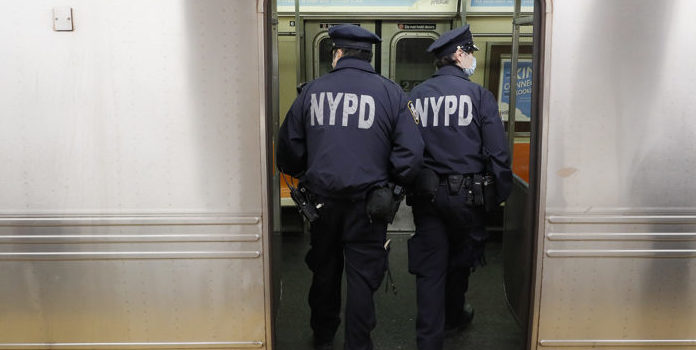After running a successful campaign that leaned heavy on a promised return to law and order, New York City Mayor Eric Adams barely had time to enjoy a gubernatorial honeymoon before the party was crashed by Manhattan’s newly-appointed District Attorney Alvin Bragg.
Instead of working to fulfill Adams’ campaign pledge to tackle the city’s skyrocketing crime rates and lock violent criminal behind bars, Bragg has instead vowed to, quite literally, keep emptying New York jails.
Even if a hardcore gangbanger, recidivist rapist or drug dealer somehow winds up incarcerated, no sentence shall be for more than 20 years. And that’s a huge “if” under the leftist lurch of the woke DA.
“The Office will not seek a carceral sentence other than for homicide or other cases involving the death of a victim,” Bragg wrote in his first official memo to staff.
That’s a fancy way of telling his staff — the folks supposedly in charge of helping to rid the streets of crime by prosecuting lawbreakers — to let a whole horde of criminals free to continue prowling the city. The exceptions to the new standard, aside from actual homicide, include domestic violence felonies, some sex crimes, and public corruption (unless, of course, your last name is Cuomo). Everything else, by default, will also not be pursued for pre-trial detention.
The new DA does include a weaselly caveat that he won’t be seeking prison time for the slew of offenses, “unless required by law,” which in most cases it would be. But only if criminals aren’t under-charged in the first place, which is where Bragg seems headed with instructions to downgrade felony charges of everything from armed robberies to drug dealing.
“Bragg’s memo also detailed the following instructions for prosecutors to reduce charges filed by cops in various cases,” reported the New York Post:
Armed robbers who use guns or other deadly weapons to stick up stores and other businesses will be prosecuted only for petty larceny, a misdemeanor, provided no victims were seriously injured and there’s no “genuine risk of physical harm” to anyone. Armed robbery, a class B felony, would typically be punishable by a maximum of 25 years in prison, while petty larceny subjects offenders to up to 364 days in jail and a $1,000 fine.
Convicted criminals caught with weapons other than guns will have those felony charges downgraded to misdemeanors unless they’re also charged with more serious offenses. Criminal possession of a weapon in the third degree, a class D felony, is punishable by up to 7 years behind bars.
Burglars who steal from residential storage areas, parts of homes that aren’t “accessible to a living area” and businesses located in mixed-use buildings will be prosecuted for a low-level class D felony that only covers break-ins instead of for more serious crimes. Those more serious crimes, class B and class C felonies, would be punishable by up to 25 and up to 15 years in prison respectively.
Drug dealers believed to be “acting as a low-level agent of a seller” will be prosecuted only for misdemeanor possession. Also, suspected dealers will only be prosecuted on felony charges if they’re also accused of more serious crimes or are actually caught in the act of selling drugs. That felon would mean facing up to seven years behind bars.
As NYC’s new law-and-order mayor, Adams, a former NYPD captain, attempted to evade the shrapnel from Bragg’s bombshell.
“I have not communicated with the DA,” Adams said, ironically at a news conference to announce the indictments of 17 members of three gangs in Brooklyn. “I have not looked over and analyzed exactly what he’s calling for.”
New York cops, on the other hand, were less than thrilled with Bragg’s debut.
“Bragg gives criminals the roadmap to freedom from prosecution and control of our streets,” said Paul DiGiacomo, head of the NYPD Detectives’ Endowment Association.
“In Bragg’s Manhattan,” he said, “you can resist arrest, deal drugs, obstruct arrests, and even carry a gun and get away with it.”

